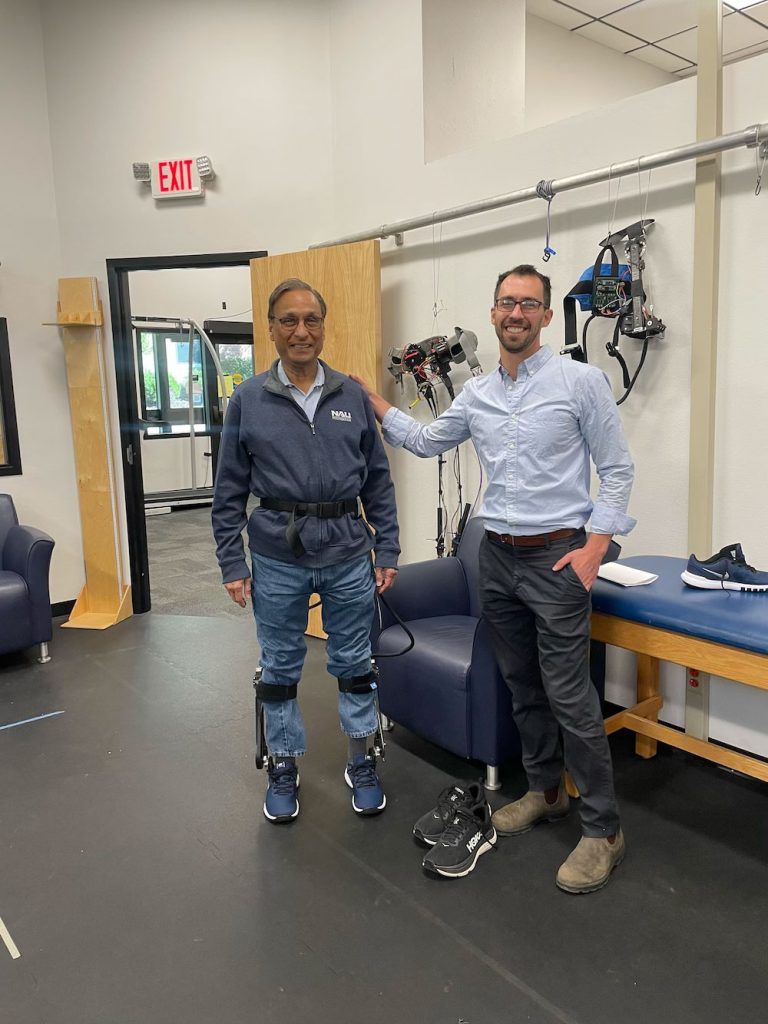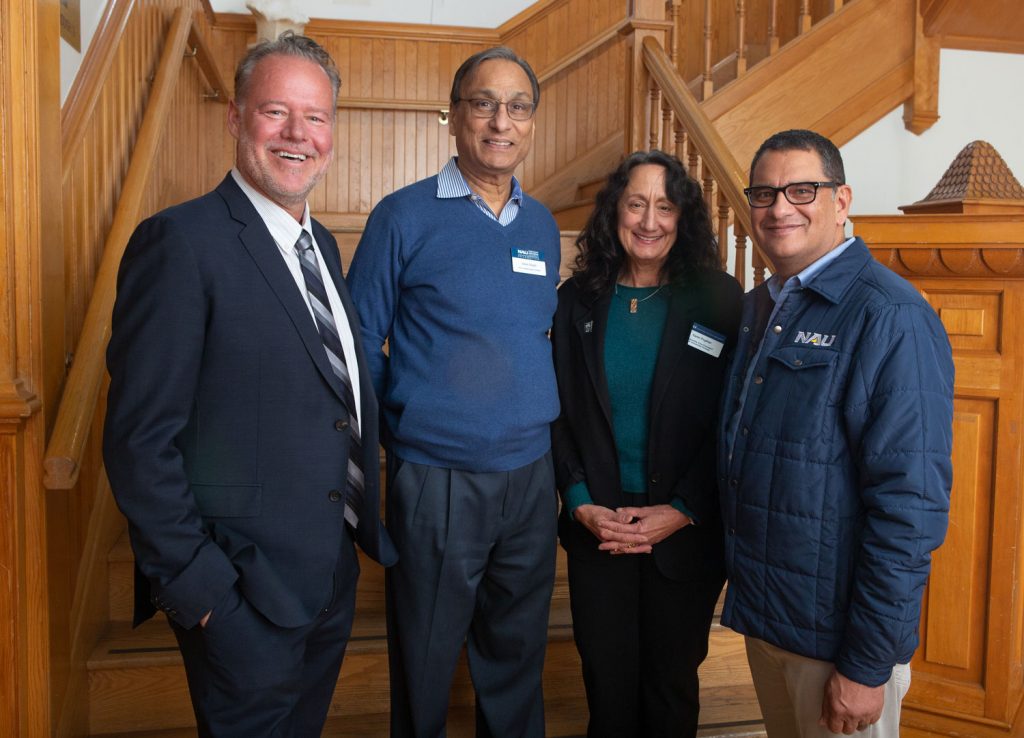Northern Arizona University is renaming the College of Engineering, Informatics, and Applied Sciences the Steve Sanghi College of Engineering, thanks to a generous $10 million cash gift—the largest gift of its kind in NAU’s 125-year history—from Maria and Steve Sanghi. Steve Sanghi, who previously served as president and CEO of Arizona-based Microchip Technology, is an international business leader, author and philanthropist with a longstanding interest in engineering, mathematics and robotics education.
“We are so grateful to Maria and Steve Sanghi for choosing to invest in NAU and fuel our mission to deliver exceptional educational programs that position our graduates to achieve economic mobility and drive positive social impact,” said NAU President José Luis Cruz Rivera. “Throughout our 125-year history, NAU has always stepped up to meet the needs of the people of Arizona and contributed to a strong workforce and vibrant communities. The naming of the Steve Sanghi College of Engineering will have a lasting impact in continuing these efforts, opening doors for talented students to prepare for careers of purpose, including in Arizona’s booming semiconductor industry.”
Sanghi’s $10 million unrestricted gift marks the university’s second named college and first named deanship, the Steve Sanghi Distinguished Deanship. Leading this prestigious role is Dean Charles Chadwell, who began his tenure at NAU this summer and whose vision will help elevate the impact of the Sanghi College of Engineering. Chadwell plans to designate funding to initiatives that broaden participation for students of all backgrounds in engineering programs, provide hands-on learning opportunities and propel graduates to career success. The deanship will also support the recruitment and retention of exceptional, mission-driven faculty who are an essential part of NAU’s teacher-scholar community, contributing to groundbreaking research and student success.
“The Steve Sanghi Deanship is a tremendous honor and will have a significant impact on our students, faculty and university community,” Chadwell said. “This gift will expand access, elevate our programmatic excellence and enable transformational initiatives to be realized swiftly that directly meet the needs of our students.”
Sanghi’s gift comes at a pivotal time, as growth in the semiconductor industry demands a strong pipeline of talent from colleges and universities. Arizona has made a major commitment to growth in this sector, and NAU is uniquely positioned to contribute, having committed to recruiting and retaining Arizona resident students. With more than 70% of NAU’s graduates staying in Arizona after graduation, the Sanghi College of Engineering’s exceptional programs align closely with high-demand jobs in the state’s workforce.
“Engineering has penetrated every field today and artificial intelligence will be everywhere soon, so engineering graduates will always be needed. That’s one fundamental purpose for this gift—to help nurture the need for the Sanghi College of Engineering and to produce a large number of engineering graduates,” said Sanghi. “Maria and I are very proud to be associated with NAU, and our commitment to the university will help ensure engineering students can participate in the workforce of the future and ultimately strengthen Arizona’s economy and communities. This is a cause dear to my heart since Arizona has been my home for the last 34 years.”

Sanghi came to the United States from India with only $150, an undergraduate degree in engineering and acceptance to the University of Massachusetts for graduate school. After struggling financially for several years, Sanghi joined Intel Corporation as a design engineer, where his career flourished. He later joined Microchip Technology, where he turned the company profitable and grew revenues substantially as one of the longest-serving chief executive officers of a semiconductor company. Recognized for his impact and contributions to Arizona and the semiconductor industry, Sanghi was awarded an honorary doctorate from NAU in 2019. Having retired from Microchip in March 2021, Sanghi became Executive Chairman of Microchip, joined the board of a leading radio frequency identification (RFID) provider, Impinj, Inc., and in 2024 joined the NAU Foundation Board.
Sanghi’s partnership and contributions to NAU started long before this generous gift. He sought out NAU to host a quickly growing FIRST Robotics Regional Competition, and in 2018 he created the Sanghi Family CSTL Robotics Professional Development Fund to support the university’s Center for Science Teaching and Learning professional development programming. Under Sanghi’s leadership, Microchip also has a long history of collaboration and partnership with NAU, from supporting senior capstone students with internships, participating in speaking engagements, serving on the college advisory board and recruiting NAU graduates.
“The long-standing partnership between Steve Sanghi and NAU demonstrates the university’s commitment to driving student success and contributing to Arizona’s vitality and economic success,” said Nick Lobejko, Vice President of NAU Advancement and CEO of the NAU Foundation. “From his volunteer ambassadorship on the NAU Foundation Board to his exceptional business acumen, he sets a remarkable example, inspiring future extraordinary gifts and supporting countless students as they seek to reach their full potential. I am immensely grateful for his generosity and know the Sanghi College of Engineering will have a transformative impact at NAU.”
A formal ribbon cutting and celebration unveiling the Steve Sanghi College of Engineering will occur in spring 2025. To learn more, visit nau.edu/college-engineering.



